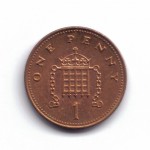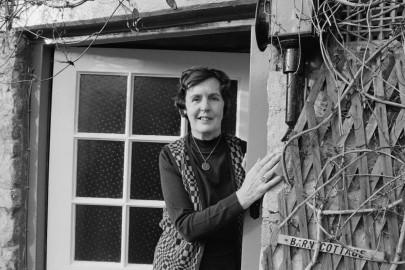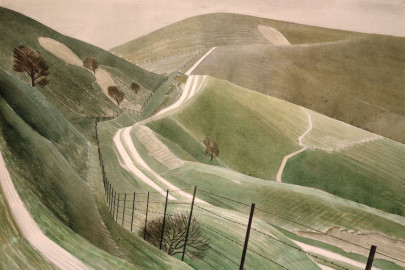Once upon a time – and it wasn’t so long ago – Alice Thomas Ellis and Beryl Bainbridge were twin stars in the literary firmament (and close friends and fellow ornaments of the Duckworth list). Since her death five years ago (in fact since rather before then), the former’s star has faded away (whereas Bainbridge’s still shines deservedly bright). This is a terrible shame, as Alice Thomas Ellis is far too good a novelist to be consigned to oblivion, or even Amazon’s 1p bargain bin.
I’d almost forgotten about her myself, but recently, on the recommendation of a Woman of Taste and Discernment, I read one I had missed when it came out (in 1990), The Inn At The End Of The World.
A short, razor-sharp comedy edged with tragedy, it’s a typical ATE novel, written in a dry, spare style that never wastes a word. It tells the story of five disparate – and indeed more or less desperate – people who come together at a small hotel on a remote Scottish island with the aim of escaping the Christmas festivities. Each of them is deftly and economically drawn and entirely convincing. What unfolds on the island is a brilliant comedy of love and misunderstanding but with a strong undertow of grief and of the supernatural – both handled with delicacy and restraint. It’s all beautifully woven together – complete with two running subtexts, The Tenant of Wildfell Hall and the biography of General Gordon that one of the characters is writing.
There are moments in The Inn… that are laugh-aloud funny, more that are wincingly funny, moments that are unsettling and moments that are deeply moving. The effect of the whole is, thanks to ATE’s assured craftsmanship, deeply satisfying – what more could one ask of a short novel?
Some enterprising publisher should get this brilliant novelist back in print. Meanwhile I’d recommend raiding that Amazon bargain bin…
You can read Beryl Bainbridge’s moving tribute to her late friend here.












gosh, a quick look at Amazon shows her to have written a fair few books
On your esteemed advice I have now purchased TIATEOTW (in hardback for 1p) so I shall give it a spin!
She is an author who deserves to be revisited, although I confess I had forgotten her. I am going to dig out my old copies of her books right now.
Is she really out of print? Someone could also collect her Spectator columns and make a book of them. My favourite of her novels was Pillars of Gold, which includes these passages that make me laugh, although they may be more appealing to female readers than to males, since they are specifically about the experience of being a housewife/mother. In the first, the book’s main character is assaulted by absurd [but, to me, not completely unfamiliar] media-induced anxieties as she tries to decide what is the best thing to do with some courgettes she is cooking for her daughter:
“… if she immersed them in water, their vitamin C content would dissipate. She could cook them now and reheat them, but that, she believed, would be deleterious to their nutritional value: it would perhaps be best to entrap them, with their vitamins and trace minerals, in a china bowl enveloped in clingfilm in the coolness of the fridge, taking care that the film did not touch them lest some cancer-inducing chemical should migrate from the one to the other.
Next she considered the potatoes: in the past she had always cooked them in their skins, but recently it had been suggested that potato skins, if not carcinogenic, were yet harmful to the system, perforating the bowel or preventing it from absorbing the vital vitamins. She scraped them carefully and put them in a steel pan … Scarlet had thrown away all her old aluminium pans since she had learned that they might cause Alzheimer’s disease … The chicken, which she next drew from the fridge, had, so the label proclaimed, ranged freely over a district of France before being hygienically and humanely slaughtered and packed. It somehow gave the impression that the fowl had led such a delightful and pleasurable existence that it was a positive act of virtue to eat it.”
In the second, the trials of the same character continue, as she tries to engage with her teenage daughter:
“Do I look all right?” asked Scarlet. She was wearing what she considered to be an ageless garment – a hip-length coat of black watered taffeta; the shoulders were rather too narrow and too sharply defined to be precisely fashionable, but the material was of most superior quality. Underneath this she wore black cotton trousers – ideally these should have been made of silk, but she felt sure no one would notice.
“You look wonderful,” said Camille without raising her eyes from the television set. She had eaten her supper” [which included the pristine courgettes, I think] “and was beginning to feel hungry again.
‘No, really,’ said Scarlet.
Camille fell to her knees from the sofa and gave her mother’s leg a patronizing pat. ‘You’ve got a sweet little face,’ she said. Scarlet, though not reassured by her words, was touched by her gesture until she saw that Camille was merely reaching for the crisp packet and had patted her in passing.
‘Do these shoes go with these trousers?’ she asked.
‘Yes,’ said Camille, her fingers deep in the crispbag.
‘You didn’t look,’ said Scarlet. ‘Are they too old-fashioned?’
‘No,’ said Camille. Scarlet gave up. Only a few years before, Camille had been acutely concerned about her mother’s appearance, sometimes refusing to be seen with her in public, but now it seemed that she no longer minded: she had expropriated from Scarlet’s wardrobe those few articles that she felt would suit herself and had thereafter left her mother to her own devices. It gave Scarlet the impression that she had grown very old and from now on might just as well go round in her shroud.”)